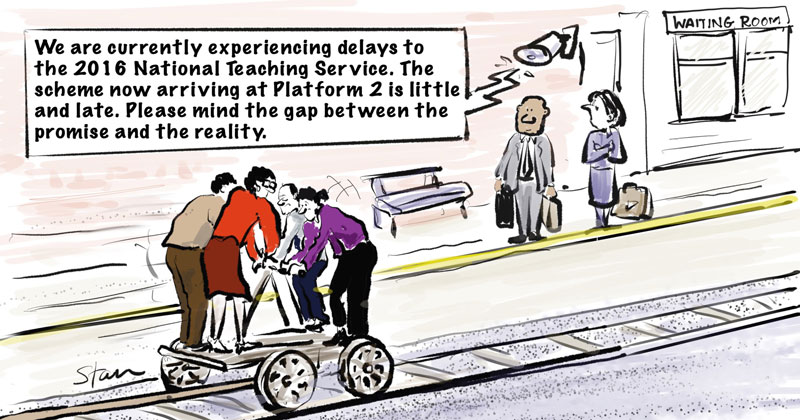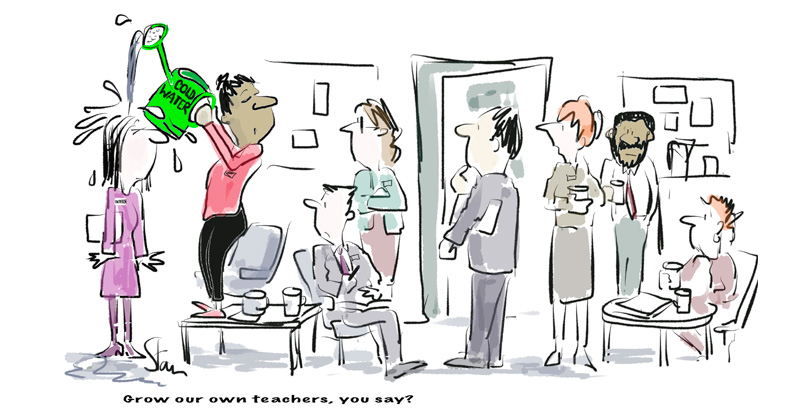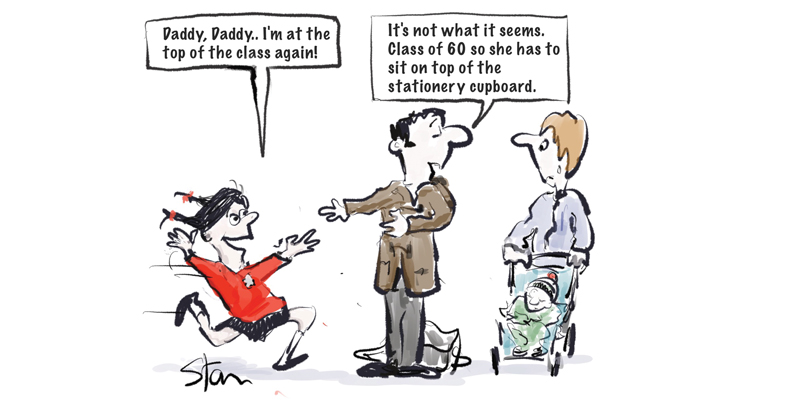“You illustrated my childhood!” author Ghislaine Kenyon quotes the oft-repeated message fielded modestly by Quentin Blake at hundreds of book signings.
Having been a teacher before other education roles at the National Gallery and Somerset House, Kenyon has also curated exhibitions of Blake’s work. Her book provides rich insight into the man whose work is imprinted on the imagination of almost anyone who has ever entered a primary school classroom, or read any of his 300 books.
The book contains over 200 of Blake’s illustrations, some previously unpublished and many from his lesser-known work for schools, hospitals and charities. In her account of this 83-year-old’s life, Kenyon begins with a critical view of his work. However, she first tempers the reader’s expectations, warning that he lacks not only controversy and momentous life-events, but even childhood memories. The memories that he does recall are not linked to his work in a causal way. Blake captures this best himself, stating: “All the whoopee! goes into the drawings!”
All the whoopee! goes into the drawings!
Kenyon was attracted to Blake’s involvement in teaching and learning. Both trained as teachers and both agree that it was not the training that formed them but “rather a deep-rooted understanding of first-hand experience in effective learning. “ He found his year at the Institute of Education disappointing as the ideas he met were not at all new to him, despite the strong and influential tutors there.
As someone who left drawing behind in childhood, I am a product of Blake’s mission as a “benevolent Godfather of Illustration” to get other people drawing. I searched this book for insights into his habits, discovering that he: is self-taught; draws standing up in a studio in the centre of his home; makes the faces he is trying to convey in his characters; includes people he has met or observed from “serious noticing”; uses his wastepaper basket a lot; “busks the colour” but not the lines; and works hard to get spontaneity into his drawings.
This last trait results from an incident when the art editor at Punch told him his rough drawings were better than his finished ones. Blake had cartoons published in Punch while still at school and read English at Cambridge rather than go to art school, thinking that at art school he might stop reading, “but at Cambridge I shan’t stop drawing.”
By his own admission, when invited to become a part-time tutor at the RCA Blake did not know what that was. Kenyon writes that “…indirectly, Blake became a teacher at the Royal College of Art because of a sense of needing to learn more.” His capacity to listen and often be the last to speak only if he has something useful to add is a thread that runs through his involvement in the arts and literature in France, where he exhibits, is revered and has been honoured.
The highlight of the book is the chapter titled “Healing”. Kenyon outlines Blake’s work in places such as: an Eating Disorder Clinic; a maternity unit; a Children’s Centre and a gangland project near King’s Cross in London. For those of us who know the artist only through his many books, the convincingly-described processes dispel any misapprehension that Quentin Blake is “primarily (or merely) a children’s illustrator”.
The book claims to be neither a biography nor an artist’s monograph. For me, it was an unwrapping of a parcel that reveals the value of one artist. Before I read the last chapter I put down this book and sought out the #Baccforthefuture campaign to include expressive arts in the Ebacc, and signed the petition.
Stan Dupp is the cartoonist for Schools Week – click below to see larger versions of his cartoons

















Your thoughts